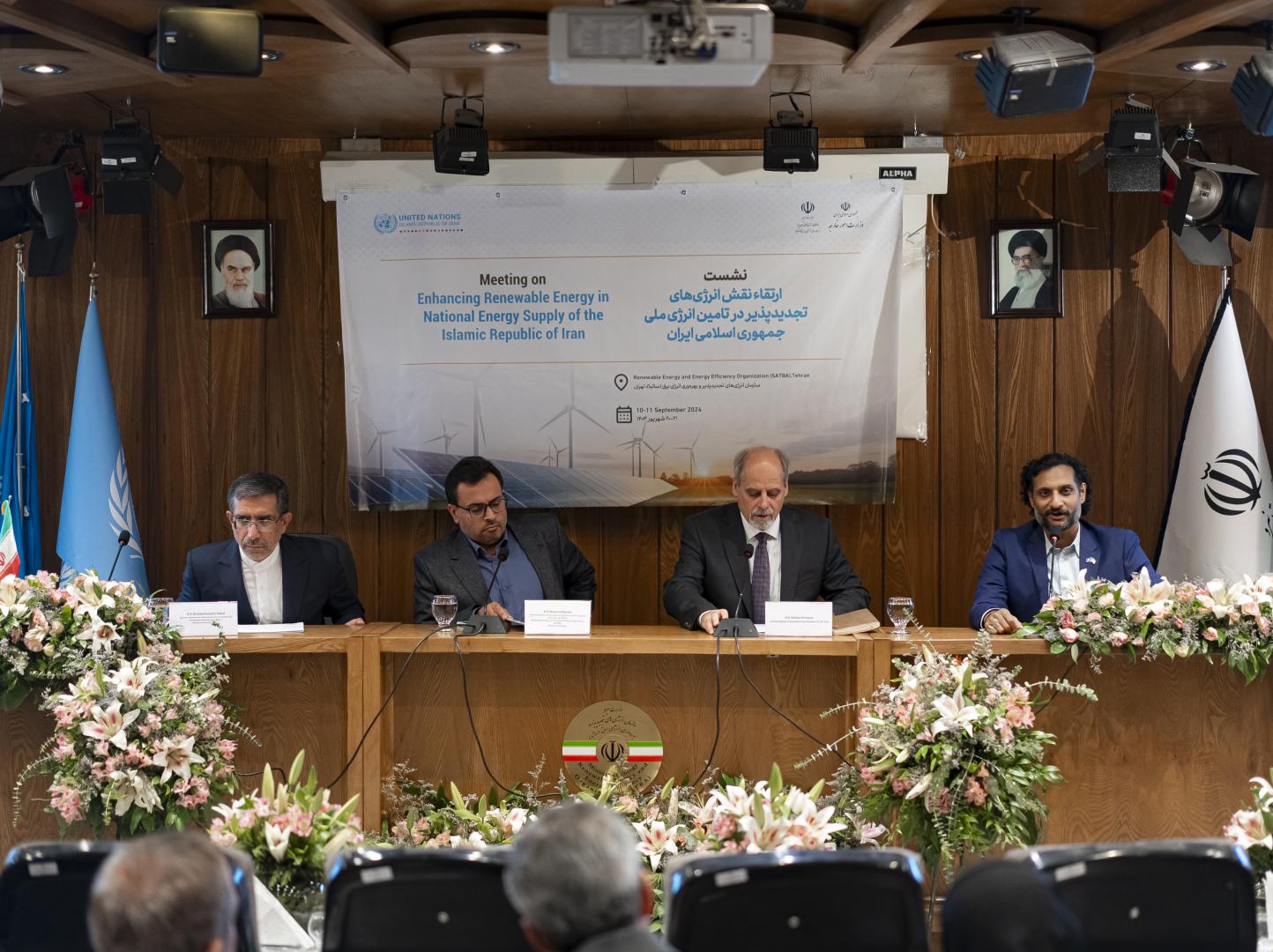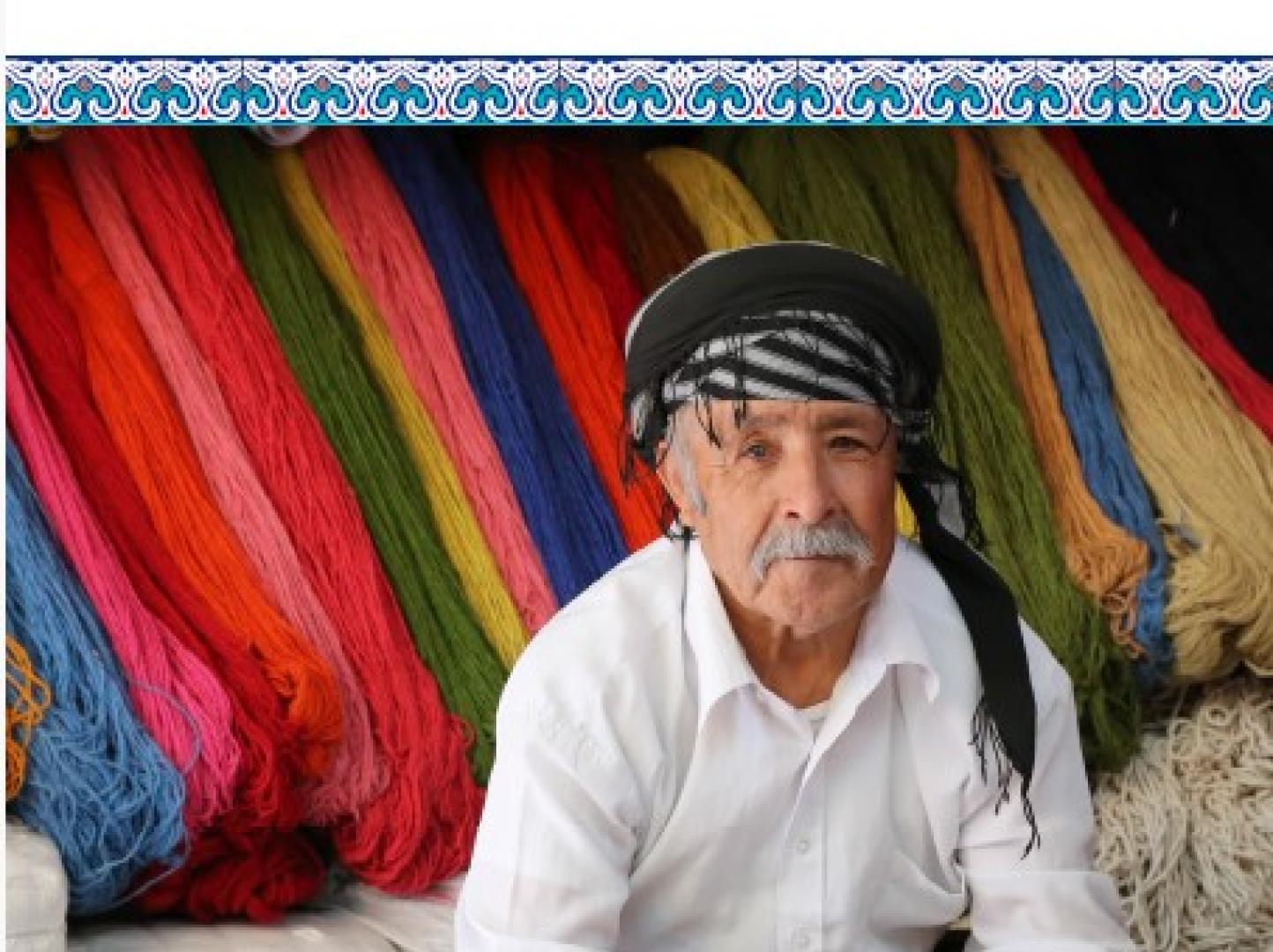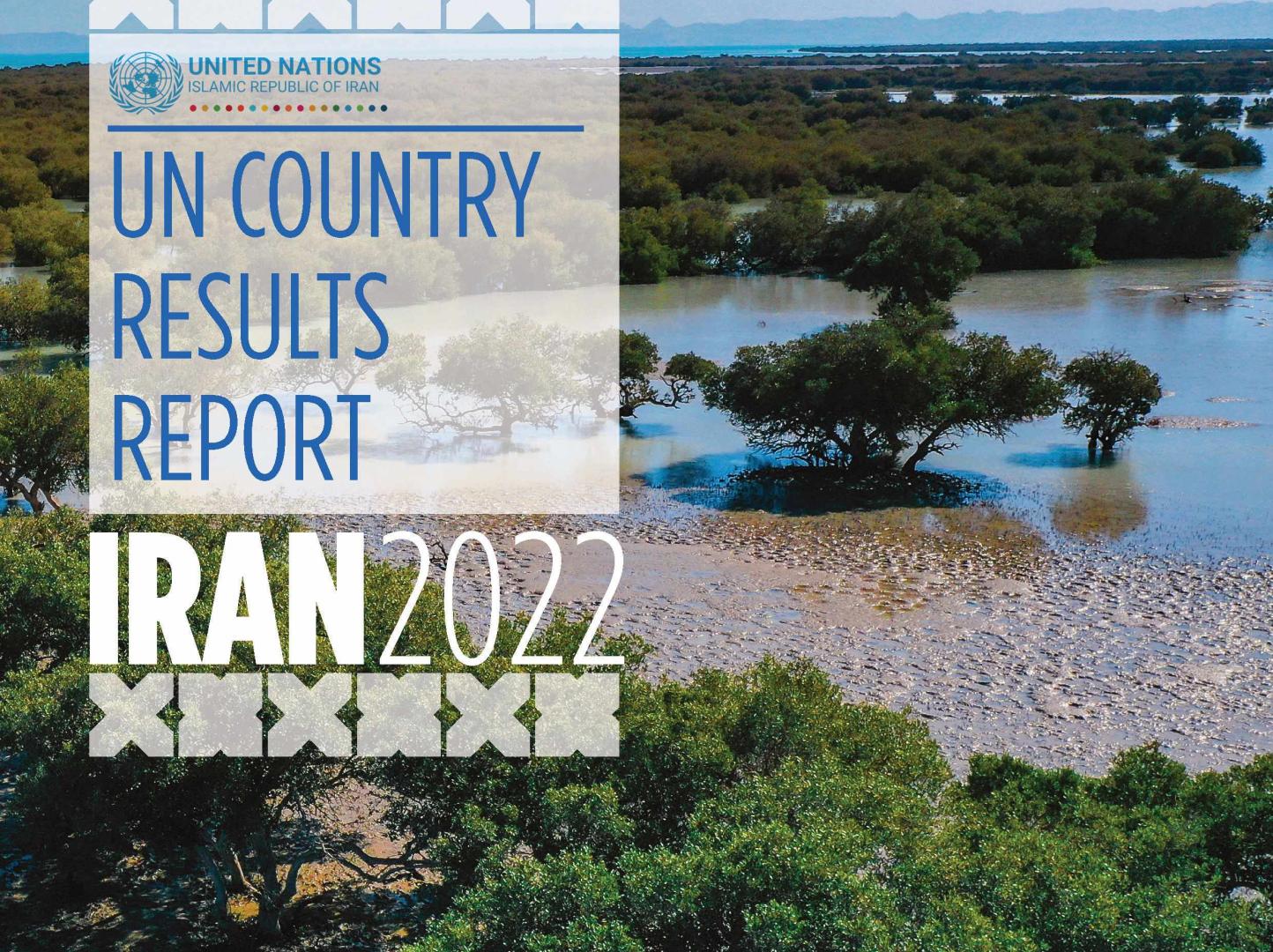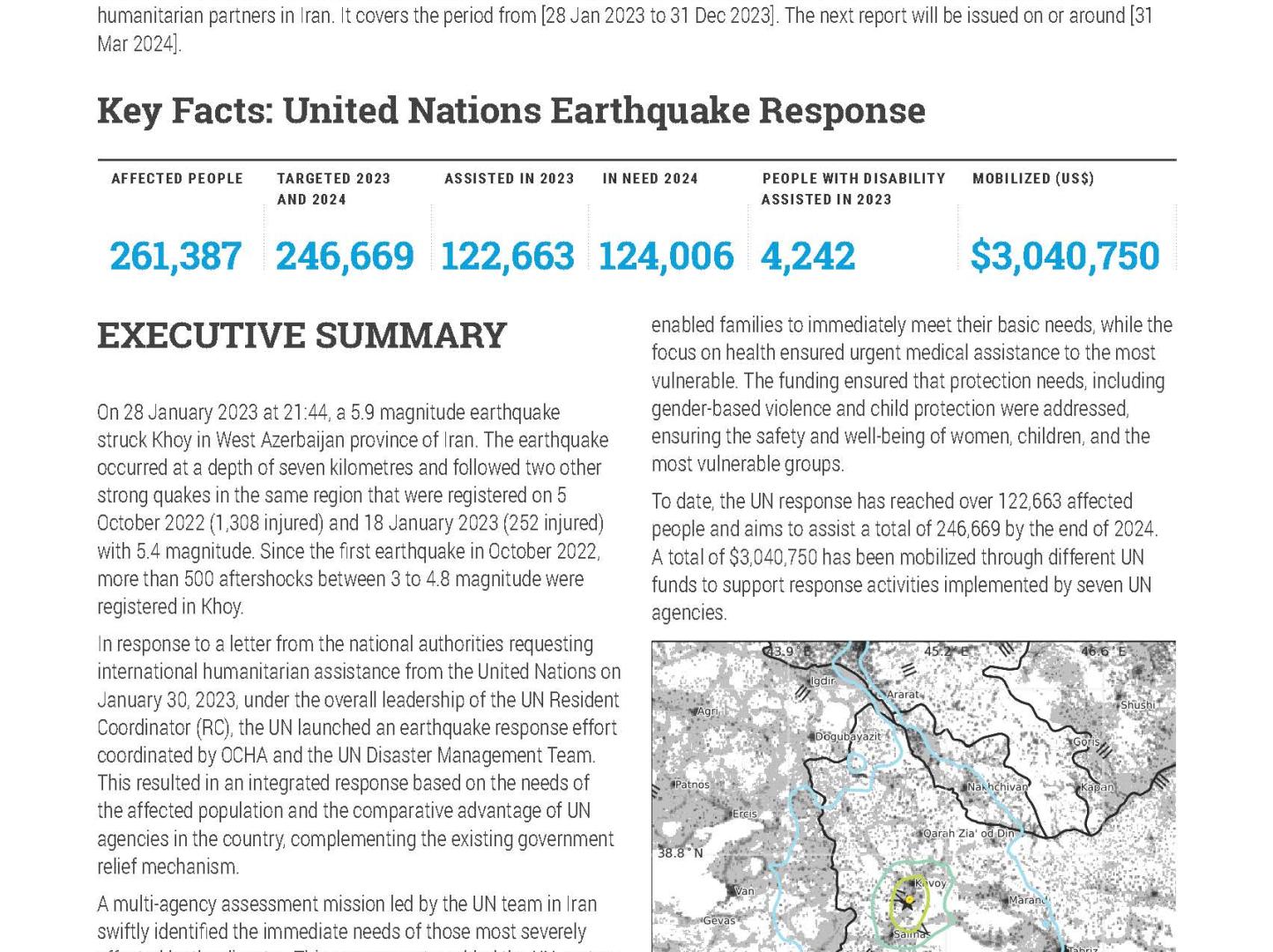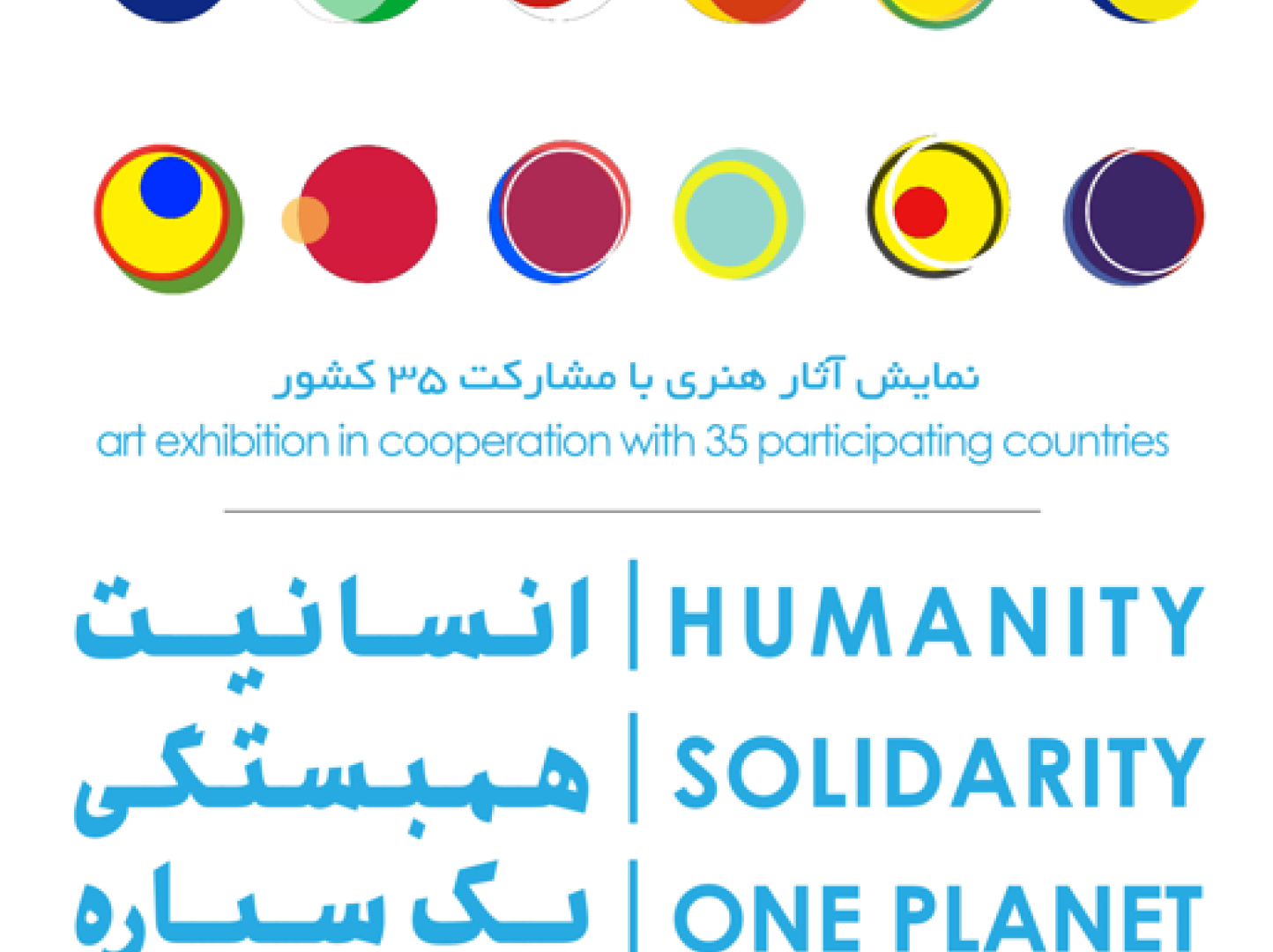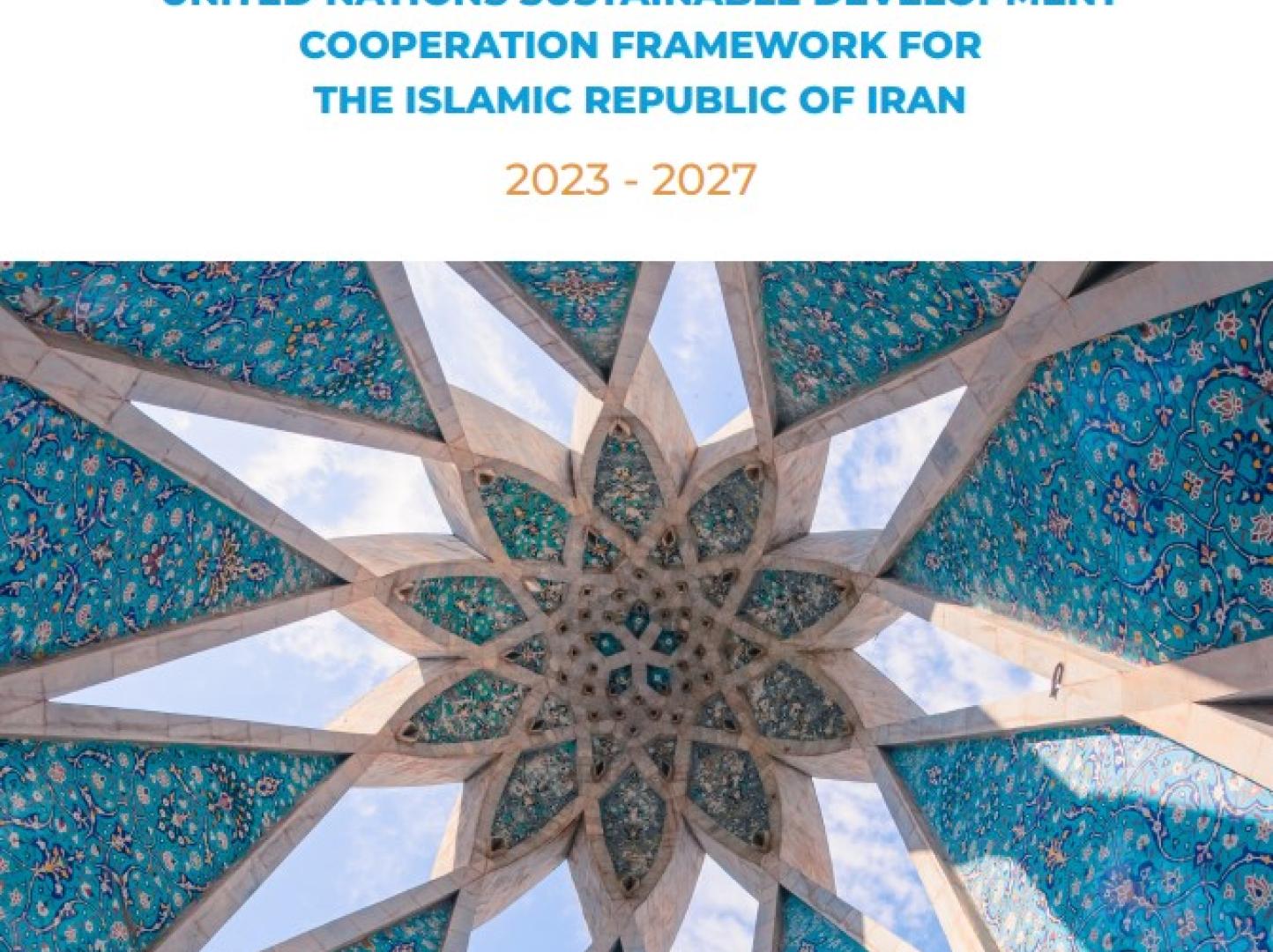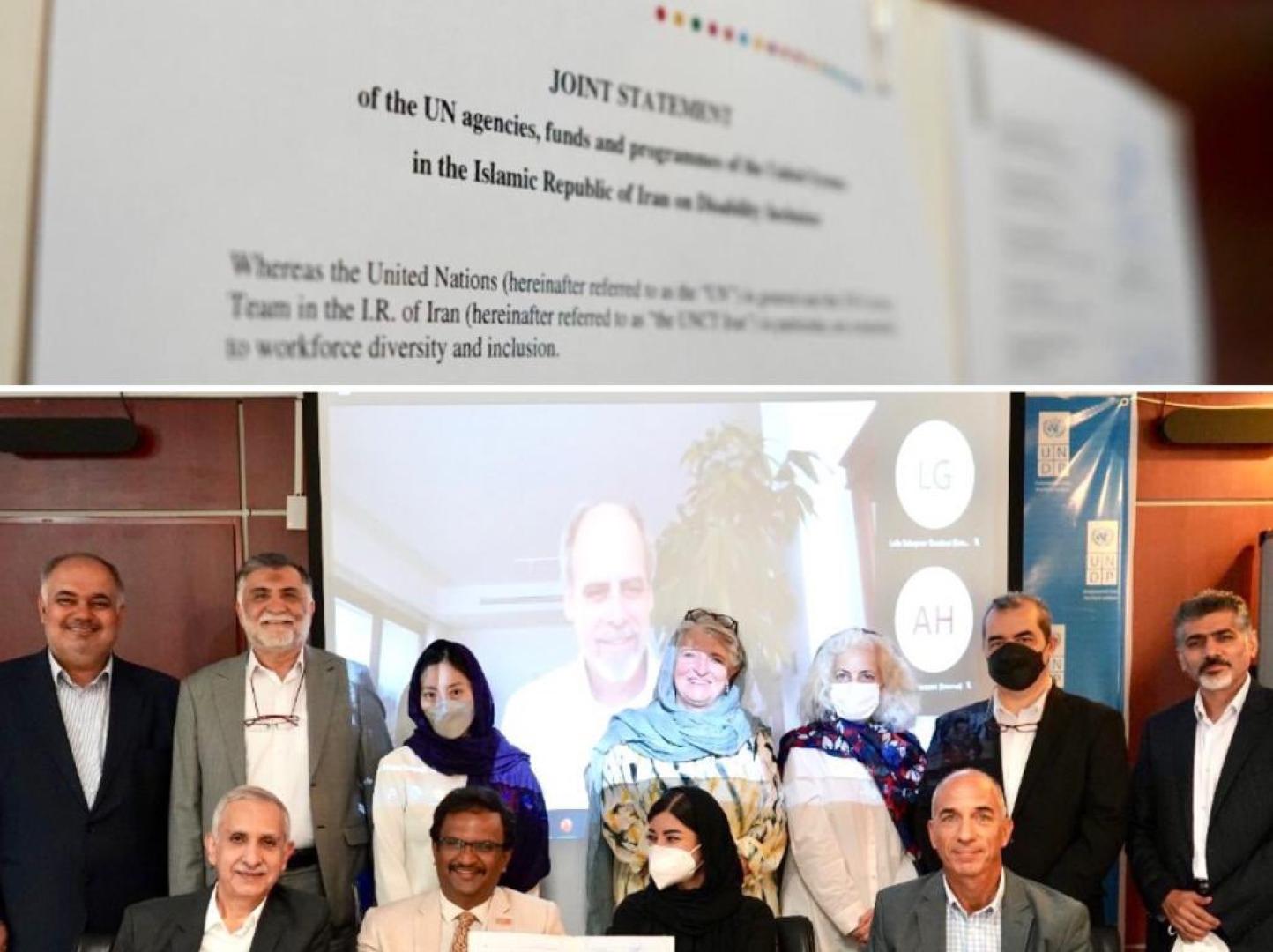Latest
Story
05 January 2026
Building National Capacity for Drug Use Disorder Treatment: UNODC TreatNet Training Continues
Learn more
Speech
31 December 2025
Message of the Secretary-General for the New Year 2026
Learn more
Story
24 December 2025
The United Nations Office on Drugs and Crime Strengthens Capacities in Drug Use Prevention, Early Detection, and Rehabilitation
Learn more
Latest
Publication
01 February 2023
United Nations Sustainable Development Cooperation Framework (UNSDCF) for I.R.Iran 2023 - 2027
The United Nations Sustainable Development Cooperation Framework (UNSDCF) for 2023-2027 was developed jointly between the Government of the Islamic Republic of Iran and the United Nations System to reflect and support the national development goals and strategies. Starting in 2021, the United Nations Country Team in Iran engaged in consultations internally and with a wide range of national partners that identified the evidence base to prioritize development needs and opportunities for the UNSDCF. These consultations resulted in the vision for United Nations support to Iran’s development that is based on equitable, inclusive, resilient, and sustainable growth and development. Five strategic priorities that guide the work of the United Nations System in Iran in the coming years were identified: (a) socio-economic resilience; (b) public health; (c) environment; (d) disaster risk reduction and management; and (e) impacts of drug use and drug trafficking.
1 of 4
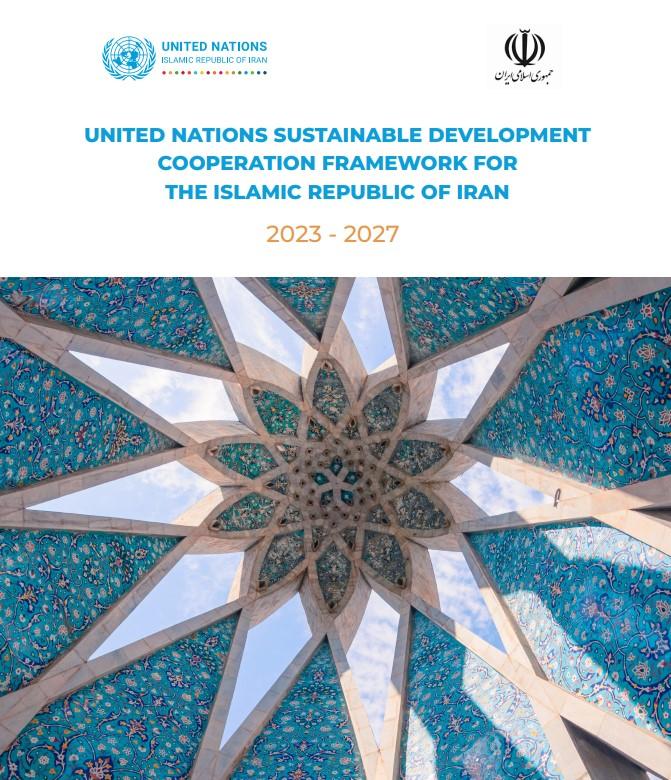
Publication
27 October 2025
United Nations Iran Country Results Report - 2024
Amid the global, regional and domestic challenges in 2024, the United Nations remained committed to supporting the people of Iran. The two largest areas of the United Nations programme interventions were health and support to refugees and host communities. The United Nations also provided impactful programme interventions in socioeconomic resilience, environment, disaster risk reduction and drug control.
1 of 4

Publication
30 October 2024
United Nations Iran Country Results Report - 2023
Throughout 2023, the UN family in Iran supported the Government of the Islamic Republic of Iran in delivering on its development plans and in the success of critical initiatives.
1 of 4

Publication
15 August 2024
United Nations Iran Country Results Report - 2022
This report lays out the UN’s collective contribution to Iran’s development and humanitarian goals, including under the United Nations Development Assistance Framework (2017-2022).
1 of 4

Story
05 January 2026
Building National Capacity for Drug Use Disorder Treatment: UNODC TreatNet Training Continues
The United Nations Office on Drugs and Crime (UNODC), in close collaboration with the Iranian Drug Control Headquarters (DCHQ) and the Ministry of Health and Medical Education (MoHME), continues to support the strengthening of evidence-based drug treatment services in the Islamic Republic of Iran. As part of these ongoing efforts, a three-day training workshop on “Assessment and Elements of Psychological Treatment for Drug Use Disorders” was held in Tehran from 28 to 30 December 2025, using the UNODC TreatNet Training Package. The workshop was implemented as part of a broader series of capacity-building initiatives aimed at enhancing the competencies of drug use disorder treatment professionals through the systematic application of the TreatNet framework.The workshop brought together psychologists, counsellors, and treatment professionals from national institutions, including Prisons Organization and MoHME-affiliated services and other relevant organizations involved in treatment, and social support. The training was delivered using the UNODC TreatNet package, which provides standardized, evidence-based guidance for the assessment and treatment of drug use disorders.The three-day agenda was designed to combine theoretical knowledge with practical skills development. Participants were introduced to the TreatNet framework and its application in the treatment of drug and alcohol use disorders. Particular emphasis was placed on the logic of screening and the use of the Alcohol, Smoking and Substance Involvement Screening Test (ASSIST), including brief interventions and their role in early detection and timely referral. Core principles of motivational interviewing were introduced and explored, with a strong focus on their practical application in clinical and counselling settings to enhance client engagement and treatment adherence. Finally, the treatment planning and prioritization, translating assessment results into structured and individualized treatment plans was covered by the training. Participants further explored strategies for putting treatment planning into practice and for supporting patients through the development of new coping and life skills. This training workshop reflects UNODC and its national counterparts’ efforts in combining international expertise with local experience and institutional knowledge. UNODC remains committed to supporting Iran’s efforts to respond to drug use disorders through integrated, person-centred, and scientifically grounded interventions. Such capacity-building initiatives play a critical role in ensuring that treatment systems are better prepared to meet the needs of individuals and communities affected by drug use disorders, while advancing public health and social well-being. This workshop was implemented with the funding received from the Kingdom of Netherlands.
1 of 5

Story
24 December 2025
The United Nations Office on Drugs and Crime Strengthens Capacities in Drug Use Prevention, Early Detection, and Rehabilitation
Tehran, 21–25 December 2025 – A multi-day training programme aimed at strengthening national and institutional capacities in drug use prevention, early detection, treatment, and social rehabilitation commenced on 21 December 2025 in Tehran. The programme, running from 21 to 25 December 2025, is organized by the United Nations Office on Drugs and Crime (UNODC) in Iran, with the support of the Government of the Russian Federation as the gracious donor, and in cooperation with the Iranian Drug Control Headquarters (DCHQ) and specialized scientific and medical institution, “V.P. Serbsky National Medical Research Centre for Psychiatry and Narcology” of the Ministry of Health of the Russian Federation.The training brings together national policymakers, technical experts, and practitioners to enhance professional capacities, review operational models, and facilitate the transfer of evidence-based practices across the prevention–treatment–rehabilitation continuum.In the opening session, Mr. Alexander Fedulov, Deputy to the Regional Representative, UNODC Afghanistan, ROCA, Iran and Pakistan, emphasized that the drug problem is increasingly global in nature, with illicit markets, emerging patterns of use, and associated health and social harms transcending national borders. Mr. Fedulov underlined that effective responses require sustained international cooperation, mutual learning, and the systematic exchange of scientific and operational expertise.Mr. Fedulov highlighted that the structure of the programme reflects this collaborative approach by bringing together leading specialists from the Russian Federation and Iranian experts working across prevention, treatment, rehabilitation, and policy sectors. The representatives from the Iranian Drug Control Headquerters further recalled the long-term strategic cooperation framework between the Islamic Republic of Iran and the Russian Federation, which includes collaboration in the field of drug control. While previous cooperation has focused primarily on supply reduction and precursor control, this programme was noted as a significant step in expanding bilateral cooperation into the areas of prevention and treatment through scientific and educational exchange. The training was presented as a foundation for continued collaboration, including the exchange of experts and joint initiatives in prevention and treatment.The first technical session provided an analytical overview of the global and regional drug situation, as well as the comprehensive system for the prevention of drug use establishing a common evidence base to inform subsequent discussions and practical exchanges throughout the programme.Over the course of the training, participants will engage in thematic sessions designed to deliver concrete capacity-building results, including improved understanding of policy and system-level prevention models; strengthened capacity for early identification and early intervention; enhanced coordination among health, social, and education; increased awareness of youth-focused and gender-responsive approaches, including those addressing the specific needs of women; and improved knowledge of medical treatment, relapse prevention, and social rehabilitation and reintegration practices.The training will conclude with summary discussions aimed at consolidating key findings, identifying transferable practices, and outlining areas for continued technical cooperation among participating institutions.
1 of 5
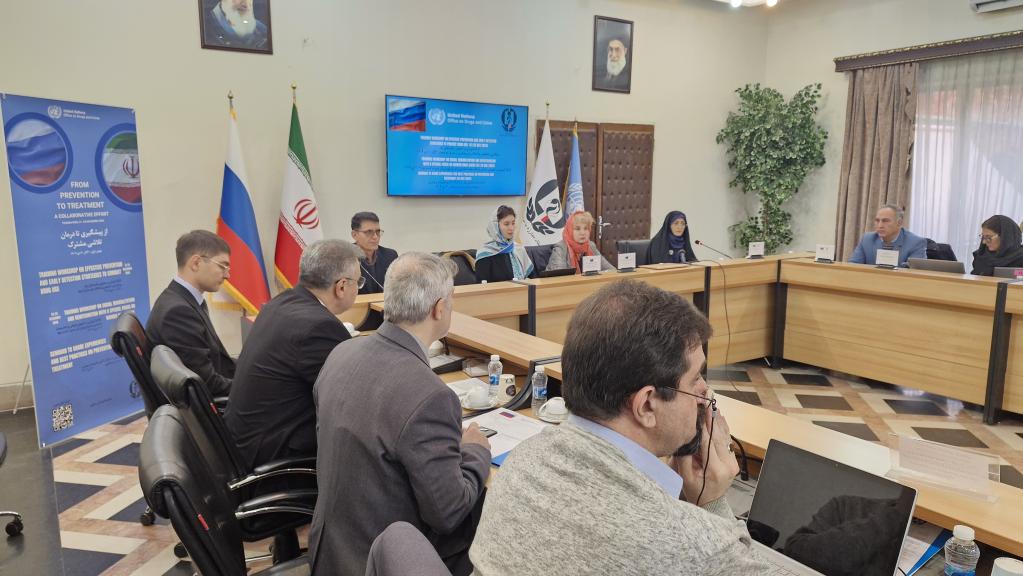
Story
07 December 2025
Scaling up sustainable settlements for Afghan refugees in the Islamic Republic of Iran
Since 2020, UNIDO has been committed to enhancing the resilience, livelihoods, and environmental sustainability of Afghan refugees in Iran through innovative waste management and composting initiatives. Building on this momentum, the ongoing project “Scaling up Sustainable Settlements for Afghan Refugees in the Islamic Republic of Iran,” supported by the Government of the Republic of Korea, aims to foster environmentally sustainable communities by promoting waste recycling and composting practices. This effort not only improves environmental health but also creates economic opportunities for refugee communities in Semnan settlement.
A notable milestone occurred in February 2025 when Mohammad, a 33-year-old refugee from Semnan settlement, successfully reactivated the local vermicompost farm that UNIDO had established and delivered in June 2023 after a period of inactivity. Demonstrating remarkable dedication and skill, Mohammad produced an impressive 1,200 kilograms of high-quality vermicompost in just four months. The achievement reflects his persistent effort, commitment to environmental sustainability, and focus on community development. Restoring the farm after neglect underscored the value of empowering local community members through targeted training, ongoing mentorship, and active engagement. Mohammad’s success illustrates how young refugees can serve as catalysts for sustainable practices, inspire others, and contribute to eco-friendly solutions within the settlement.
This accomplishment reflects the potential of community-led initiatives supported by continuous capacity building and fosters a sense of ownership and pride among refugees. With ongoing support, Mohammad’s success creates a pathway for expanding vermicomposting activities, improving waste management, and promoting environmentally friendly livelihoods within the settlement.
Following the launch of operations at the vermicompost hall by Mohammad, UNIDO aligned with its capacity-building program and, in its second round, conducted a waste-management training focused on vermicomposting. Consequently, a comprehensive home-scale vermicomposting training session took place on May 7, 2025, at the Semnan refugee settlement.
The training saw the enthusiastic participation of 133 refugees—127 women and 6 men—across various age groups. Many participants expressed strong interest in applying these practices, which play a vital role in reducing waste, enhancing food security, and promoting environmental stewardship within the community.To translate the May 7, 2025 training into action, a coordinated distribution took place on July 28, 2025. In this phase-one rollout, 60 women refugees received vermicompost packages produced by the settlement’s own community capacity, led by Mohammad and his wife, Raziyeh. The aim was to equip women with practical tools for sustainable gardening and waste reduction, reinforcing gender-inclusive approaches to environmental resilience within the Semnan settlement.
Beyond the distribution itself, the event also served as an opportunity to reinforce key concepts introduced during the training, including proper waste segregation, household-level composting techniques, and simple methods for integrating vermicompost into small-scale home gardens. Participants expressed appreciation for both the materials received and the continued technical guidance, noting that such support enhances their ability to improve soil fertility, grow nutritious produce, and reduce household waste.
Now Tayebeh, a 42-year-old refugee woman who participated in UNIDO’s training and received the vermicompost package, expressed clear satisfaction with the initiative, noting significant improvements in her plants’ growth and a marked reduction in waste destined for landfill since adopting vermicompost; she also asked the UNIDO team for additional and larger vermicompost packages to expand the program, saying, “I’ve seen a real change in how we handle waste— vermicompost has turned what used to go to landfill into something useful, and now we’re keeping our surroundings cleaner and healthier for our children.”
Building on this momentum, UNIDO plans a phased expansion: increasing vermicompost capacity within the settlement, forming a community cooperative to train more participants, and extending the program to settlements through scaled deployments and strengthened supply chains. Tayebeh and other successful participants welcomed the rollout and have offered to mentor new participants, helping ensure the initiative remains deeply rooted in local needs, dignity, and shared success. Project’s main objectives:Empower Afghan refugees/host population through the improved living environment, access to sustainable infrastructures, and livelihood opportunitiesCapacity building of refugees to participate in economic activities after returning to the home country through vocational trainingDonor: The Government of Republic of Korea (RoK)Project Budget: 998,067 USDTarget community and geographical Scope:The host community and Afghan refugees residing in two settlements, with a total population of approximately 8,000. Mohajerin settlement in Semnan, Semnan provinceTorbat-e Jam settlement in Torbat-e Jam, Razavi Khorasan province
A notable milestone occurred in February 2025 when Mohammad, a 33-year-old refugee from Semnan settlement, successfully reactivated the local vermicompost farm that UNIDO had established and delivered in June 2023 after a period of inactivity. Demonstrating remarkable dedication and skill, Mohammad produced an impressive 1,200 kilograms of high-quality vermicompost in just four months. The achievement reflects his persistent effort, commitment to environmental sustainability, and focus on community development. Restoring the farm after neglect underscored the value of empowering local community members through targeted training, ongoing mentorship, and active engagement. Mohammad’s success illustrates how young refugees can serve as catalysts for sustainable practices, inspire others, and contribute to eco-friendly solutions within the settlement.
This accomplishment reflects the potential of community-led initiatives supported by continuous capacity building and fosters a sense of ownership and pride among refugees. With ongoing support, Mohammad’s success creates a pathway for expanding vermicomposting activities, improving waste management, and promoting environmentally friendly livelihoods within the settlement.
Following the launch of operations at the vermicompost hall by Mohammad, UNIDO aligned with its capacity-building program and, in its second round, conducted a waste-management training focused on vermicomposting. Consequently, a comprehensive home-scale vermicomposting training session took place on May 7, 2025, at the Semnan refugee settlement.
The training saw the enthusiastic participation of 133 refugees—127 women and 6 men—across various age groups. Many participants expressed strong interest in applying these practices, which play a vital role in reducing waste, enhancing food security, and promoting environmental stewardship within the community.To translate the May 7, 2025 training into action, a coordinated distribution took place on July 28, 2025. In this phase-one rollout, 60 women refugees received vermicompost packages produced by the settlement’s own community capacity, led by Mohammad and his wife, Raziyeh. The aim was to equip women with practical tools for sustainable gardening and waste reduction, reinforcing gender-inclusive approaches to environmental resilience within the Semnan settlement.
Beyond the distribution itself, the event also served as an opportunity to reinforce key concepts introduced during the training, including proper waste segregation, household-level composting techniques, and simple methods for integrating vermicompost into small-scale home gardens. Participants expressed appreciation for both the materials received and the continued technical guidance, noting that such support enhances their ability to improve soil fertility, grow nutritious produce, and reduce household waste.
Now Tayebeh, a 42-year-old refugee woman who participated in UNIDO’s training and received the vermicompost package, expressed clear satisfaction with the initiative, noting significant improvements in her plants’ growth and a marked reduction in waste destined for landfill since adopting vermicompost; she also asked the UNIDO team for additional and larger vermicompost packages to expand the program, saying, “I’ve seen a real change in how we handle waste— vermicompost has turned what used to go to landfill into something useful, and now we’re keeping our surroundings cleaner and healthier for our children.”
Building on this momentum, UNIDO plans a phased expansion: increasing vermicompost capacity within the settlement, forming a community cooperative to train more participants, and extending the program to settlements through scaled deployments and strengthened supply chains. Tayebeh and other successful participants welcomed the rollout and have offered to mentor new participants, helping ensure the initiative remains deeply rooted in local needs, dignity, and shared success. Project’s main objectives:Empower Afghan refugees/host population through the improved living environment, access to sustainable infrastructures, and livelihood opportunitiesCapacity building of refugees to participate in economic activities after returning to the home country through vocational trainingDonor: The Government of Republic of Korea (RoK)Project Budget: 998,067 USDTarget community and geographical Scope:The host community and Afghan refugees residing in two settlements, with a total population of approximately 8,000. Mohajerin settlement in Semnan, Semnan provinceTorbat-e Jam settlement in Torbat-e Jam, Razavi Khorasan province
1 of 5

Story
03 December 2025
FAO and Iran new step to innovation and quality integrity in saffron value chain
Mashhad - The Food and Agriculture Organization of the United Nations (FAO), in collaboration with the Ministry of Agriculture-Jahad (MAJ) and the Iranian Society for Horticultural Sciences (IrSHS), held a National Workshop on Saffron Quality Integrity and Value Chain Development.Taking place from 25 to 29 November, the workshop brings together farmers, processors, cooperatives, traders, and national experts to enhance capacities in improved production practices, post-harvest handling, safety, traceability, modern marketing, and digital branding.The opening ceremony featured remarks from senior officials including Mohammad Mehdi Boroumandi, Deputy Minister for Horticulture at MAJ and Farrukh Toirov, FAO Representative in the Islamic Republic of Iran.The workshop highlights the need to respond to emerging challenges, including climate pressure, water scarcity, and growing global competition. Strengthening quality integrity, from cultivation to export, was emphasized as essential for maintaining international market confidence.In his remarks, FAO Representative stressed the importance of innovation in meeting modern consumer expectations. “Ready-to-use and user-friendly saffron products such as instant dissolved saffron, pre-dosed packaging, and smart dispensing systems are becoming central to modern consumer demand,” he noted.He added that such innovations would enable Iran to diversify into high-value saffron derivatives and expand market reach.Toirov emphasized that strengthening quality integrity, transparency, branding, and market competitiveness will ensure that Iranian saffron continues to set global standards and capture new opportunities in the modern marketplace.He also highlighted the role of digital platforms in shaping global saffron branding. “Social media platforms, digital influencers, and online branding can play a decisive role in promoting Iranian saffron worldwide and increasing demand for innovative saffron formats,” he said.In closing remarks, FAO reaffirmed its commitment to supporting Iran in building a sustainable, competitive, and innovation-driven saffron sector. Toirov expressed appreciation to MAJ, IrSHS, the International Society for Horticultural Sciences, national experts, and all stakeholders for their strong collaboration.FAO Representative welcomed the initiative to designate an International Saffron Day on the United Nations international calendar and expressed readiness to provide technical guidance and support through the appropriate UN channels.Global leader in saffron productionProducing 85–90 percent of the world’s saffron, Iran remains the global leader and a benchmark setter for quality standards.Saffron cultivation is deeply embedded in rural traditions, particularly in Khorasan Razavi and South Khorasan, supporting the livelihoods of hundreds of thousands of smallholder farmers and ensuring the transfer of generational knowledge.As a high-value, climate-resilient crop, saffron contributes significantly to sustainable agriculture in arid regions and plays an important role in food security and rural development.The training was held under the FAO’s flagship initiative “Control of Food Authenticity and Management of Food Supply Chain for Successful Achievement of SDGs – Piloting Saffron Value Chain”, which aims to strengthen authenticity, quality assurance, and value chain governance within Iran’s saffron sector, ensuring that Iranian saffron continues to be recognized globally for its excellence.
1 of 5
Story
03 December 2025
UNODC Iran supports enhanced cooperation between Iranian and Russian counterparts to strengthen regional drug-control efforts
The United Nations Office on Drugs and Crime (UNODC) in the Islamic Republic of Iran, with cooperation of the Siberian Law Institute of the Ministry of Internal Affairs of the Russian Federation, organized a five-day specialized training course for law enforcement experts and officers from the Anti-Narcotics Police of the Islamic Republic of Iran, in Krasnoyarsk – Russia, from 24 to 28 November 2025.
The UNODC Iran has been actively present in the Islamic Republic of Iran since 1999 and considers Iran as one of the strategic partners for drug control and crime prevention in the region and has been supporting the Islamic Republic of Iran by providing technical assistance and training for years ever since its establishment. UNODC Iran has a longstanding record of cooperation with the Government of the Russian Federation, one of the key donors supporting its activities. This training marked the second programme conducted at this Institute with the valuable contributions of Russian experts and senior instructors.
The comprehensive curriculum of this training encompassed topics, inter alia: tactics of conducting certain investigative actions in the investigation of crimes related to drug trafficking; methods of investigating organized criminal activities related to drug trafficking; methods of crime investigation in the sphere of illicit trafficking of narcotic drugs; psychotropic substances and their analogues, new types of narcotic drugs, psychotropic substances and their derivatives, analogues and precursors; technical means of detecting narcotic drugs, etc.In addition to various lectures and specialized seminars and classes envisaged under the curriculum of this training, practical visits and trainings were foreseen for the members of the delegation, which significantly enriched the courses, and complemented the theoretical section.
On the last day of the event, an international round-table was held on “Countering drug trafficking in the Russian Federation and the Islamic Republic of Iran”, in which the instructors and members of the Iranian delegation took the opportunity to share information and ideas.
In a message, the Deputy Regional Representative for Afghanistan, Central Asia, Iran and Pakistan, Mr. Alexander Fedulov, highlighted the threats posed by drugs and organized crime as well as the effects they have on all aspects of societies, from security and safety to health and development, which need broader international cooperation. In his message it was stated that due to its unique geographical location, Iran bears a great responsibility, and at the same time, it has shown great commitment in fight against drugs and crimes.
At graduation ceremony the certificates of the participants from the Islamic Republic of Iran were handed over by the Police Colonel Alexei Kalugin, the Acting Head of the Siberian Law Institute of the Ministry of Internal Affairs of the Russian Federation, in Krasnoyarsk, Russian Federation. Cooperation of UNODC Iran and academies and academia in and from the Russian Federation lies under the UNODC Country Partnership Programme of UNODC Iran in the Islamic Republic of Iran. The advanced training, held in this Institute from 24 to 28 November 2025, was made possible with generous funding received from the Russian Federation, and invaluable support and coordination extended to UNODC from the Russian Embassy in Tehran.
The UNODC Iran has been actively present in the Islamic Republic of Iran since 1999 and considers Iran as one of the strategic partners for drug control and crime prevention in the region and has been supporting the Islamic Republic of Iran by providing technical assistance and training for years ever since its establishment. UNODC Iran has a longstanding record of cooperation with the Government of the Russian Federation, one of the key donors supporting its activities. This training marked the second programme conducted at this Institute with the valuable contributions of Russian experts and senior instructors.
The comprehensive curriculum of this training encompassed topics, inter alia: tactics of conducting certain investigative actions in the investigation of crimes related to drug trafficking; methods of investigating organized criminal activities related to drug trafficking; methods of crime investigation in the sphere of illicit trafficking of narcotic drugs; psychotropic substances and their analogues, new types of narcotic drugs, psychotropic substances and their derivatives, analogues and precursors; technical means of detecting narcotic drugs, etc.In addition to various lectures and specialized seminars and classes envisaged under the curriculum of this training, practical visits and trainings were foreseen for the members of the delegation, which significantly enriched the courses, and complemented the theoretical section.
On the last day of the event, an international round-table was held on “Countering drug trafficking in the Russian Federation and the Islamic Republic of Iran”, in which the instructors and members of the Iranian delegation took the opportunity to share information and ideas.
In a message, the Deputy Regional Representative for Afghanistan, Central Asia, Iran and Pakistan, Mr. Alexander Fedulov, highlighted the threats posed by drugs and organized crime as well as the effects they have on all aspects of societies, from security and safety to health and development, which need broader international cooperation. In his message it was stated that due to its unique geographical location, Iran bears a great responsibility, and at the same time, it has shown great commitment in fight against drugs and crimes.
At graduation ceremony the certificates of the participants from the Islamic Republic of Iran were handed over by the Police Colonel Alexei Kalugin, the Acting Head of the Siberian Law Institute of the Ministry of Internal Affairs of the Russian Federation, in Krasnoyarsk, Russian Federation. Cooperation of UNODC Iran and academies and academia in and from the Russian Federation lies under the UNODC Country Partnership Programme of UNODC Iran in the Islamic Republic of Iran. The advanced training, held in this Institute from 24 to 28 November 2025, was made possible with generous funding received from the Russian Federation, and invaluable support and coordination extended to UNODC from the Russian Embassy in Tehran.
1 of 5
Press Release
10 June 2025
Tehran Hosts High-Level UN–Iran Panel on Safeguarding the Zagros Forests
The event, co-hosted by the Iran’s Ministry of Foreign Affairs, the Natural Resources & Watershed Management Organization, the Plan and Budget Organization and the United Nations Resident Coordinator’s Office, is the last of seven thematic panels feeding recommendations to the International Conference on Sustainable Zagros Forest Management on 29 June 2025.In his keynote address, Deputy Foreign Minister for Legal and International Affairs Dr. Kazem Gharibabadi described the Zagros as “a priceless heritage for Iran and the world” and called sustainable forest management “an essential tool to fight climate change, safeguard water resources and ensure prosperity for future generations.” Dr. Gharibabadi added that “the future of the Zagros will profoundly shape the future of our planet. Let us work together for a better planet.” Deputy Foreign Minister Ghariabadi underlined the need for the transfer of technology and financing from developed countries.UN Resident Coordinator in the Islamic Republic of Iran, Mr. Stefan Priesner, also highlighted the forests’ role as the hydrological backbone of western Iran and called for “environmental financing to become a priority for all stakeholders,” adding that Bakhtiari nomads and other local communities “must be at the centre of conservation efforts. These oak mountains are not just scenic—they are foundational to Iran’s history, culture and future. Protecting them is a shared responsibility.” said the Resident Coordinator. “Without urgent action, we risk losing not only the Zagros forests but the life systems they support.” Covering almost 6 million hectares—about 40 percent of Iran’s total forest area—the Zagros oak woodlands regulate water, prevent soil erosion and support millions of rural livelihoods, yet have shrunk by nearly half in 80 years because of illegal logging, overgrazing and climate change. ***********************For further information please contact United Nations Information Centre (UNIC) in Tehran:+989121053220Unic-tehran@un.org
1 of 5
Press Release
16 January 2025
THE EUROPEAN UNION SUPPORTS THE MOST VULNERABLE REFUGEES IN IRAN THROUGH ADDITIONAL FUNDING TO WFP
This critical funding enables WFP’s to sustain its cash support programme for refugees until early 2025. The programme has already made significant progress over the past months empowering refugees to meet their basic needs.Iran hosts one of the largest refugee populations globally, with 3.8 million refugees and individuals in refugee-like situations, the majority of whom are from Afghanistan. With the generous support of donors, WFP provides vital assistance to 33,000 of the most vulnerable refugees across 20 settlements. This support includes food, cash assistance, school-based programmes, and livelihood opportunities, all aimed at supporting their resilience and eventual voluntary repatriation.In partnership with the EU, WFP has achieved key milestones; providing thousands of refugee families with monthly cash assistance. This innovative approach gives refugees freedom of choice and restores a sense of normalcy into their lives by allowing them to buy food items of their choice in local shops to diversify their diets."The funds received will directly touch the lives of thousands of refugees in Iran, providing them with necessary support and ensuring their well-being and stability amidst challenging circumstances,” said WFP Representative in Iran Maysaa Alghribawy. "However, the needs remain great, and we urge other donors to join us in our mission to ensure food security for all."With the additional resources, WFP Iran aims to continue its operations seamlessly, providing life-saving assistance to those in need. The organization remains committed to working closely with the EU and other partners to address food security challenges refugees in Iran face.# # # The United Nations World Food Programme is the world’s largest humanitarian organization saving lives in emergencies and using food assistance to build a pathway to peace, stability, and prosperity for people recovering from conflict, disasters, and the impact of climate change.Follow us on X, formerly Twitter, via @wfp_media, @wfpiranFor more information please contact (email address: firstname.lastname@wfp.org):Dara Darbandi, WFP/ Iran, Mob. +98 912 308 4147
1 of 5
Press Release
01 December 2024
UNDP Welcomes New Contribution from Japan to Strengthen Wetland Management and Climate Resilience in Iran
Japan has been a key partner of the Government of Iran and UNDP since 2014 in supporting sustainable natural resource management in wetland basins and diversifying livelihoods of communities reliant on wetlands. During the signing ceremony on 1 December 2024 the Government of Japan and UNDP signed exchange of notes to implement "The Project for Developing Conservation System of Wetlands in Lake Urmia and Other Wetlands including their Surrounding Communities." The project will be jointly implemented with the Department of Environment and in collaboration with the Food and Agriculture Organization of the United Nations (FAO) from 2024 to 2028.The project will build on the past achievements and will accelerate efforts to successfully scale up piloted models and practices. By focusing on sustainable agriculture and alternative livelihoods that are adapted to climate change, the initiative seeks to create long-term benefits for local communities while preserving the biodiversity of wetlands as vital ecosystems."Over the past ten years, the unwavering support from the People and the Government of Japan has positively impacted agricultural productivity and enhanced livelihoods in target communities. In the next four years, we will continue promoting innovative, water-efficient agricultural practices, while emphasizing scaling up for a better future for all.” said Gulbahor Nematova, UNDP Iran Deputy Resident Representative. H.E. Mr. Tsukada, the Ambassador of Japan to Iran stated: “Iran has 26 valuable wetlands listed under the Ramsar Convention, including Lake Urmia. These wetlands, which are home to diverse species and migratory birds, must be conserved in cooperation with the international community.Over the past 10 years, Japan has provided support for Lake Urmia conservation, but in order to further restore the wetland, it is essential to manage uncontrollable water extraction, develop an irrigation system that appropriately respond the climate change, and create sustainable industries such eco-tourism.In addition to directly tackling these challenges, this project’s knowledge and technologies will be utilized in other wetlands in Iran.We hope that the new project signed today will contribute to the environmental protection and economic development of the areas around the wetlands.”Media contact in UNDP Iran: communications.ir@undp.org ### ### ### UNDP is the leading United Nations development organization. Working with our broad network of experts and partners in 170 countries, we help nations to build integrated, lasting solutions for people and the planet.Learn more at www.undp.org/Iran and follow us on Instagram and X: @UNDPIran.
1 of 5
Press Release
25 August 2024
Iran partner with FAO and Green Climate Fund to strengthen climate resilience
The newly signed project, titled “Strengthening Iran’s access to GCF with national ownership, knowledge-based policies and sound technologies,” represents a crucial step towards aligning national strategies with climate action and promoting sustainable development.Iran, like many nations, faces the challenge of climate change and grappling with its adverse effects, including escalating droughts and catastrophic floods further exacerbating water scarcity issues affecting ecosystems, biodiversity, food production and economy. In response, Iran's National Strategic Action Plan on Climate Change 2017 outlines a comprehensive roadmap for climate adaptation and mitigation, contingent upon securing financial and technical support under the United Nations Framework Cooperation on Climate Change (UNFCCC).Engaging all key stakeholders including government, private sector and NGOs, the inception workshop for this project is held on 19 August, marking the official launch of this crucial initiative and setting the stage for collaborative efforts towards achieving climate resilience in the country.This transformative initiative between the Islamic Republic of Iran, GCF and FAO aims to fortify the country's resilience to climate change through a multifaceted approach. By fostering closer coordination with GCF and other climate finance institutions, establishing direct access to GCF resources, and integrating climate change considerations into development planning, the project seeks to pave the way for strategic climate investment promotion. Additionally, by facilitating access to advanced climate-resilient technologies and engaging both targeted sectors and the private sector in climate action initiatives, Iran aims to develop a robust pipeline of climate projects aligned with national priorities and GCF standards. Anticipated outcomes include enhanced national coordination mechanisms, the development of a strategy for direct access to the GCF, an updated GCF Country Programme, and the establishment of a comprehensive National Climate Change Knowledge Hub (NCCKH).The establishment of NCCKH will serve as a vital resource for disseminating technical knowledge and raising public awareness, ultimately contributing to enhanced national resilience and sustainable development.
1 of 5
Press Release
12 August 2024
UN-Organized Art Exhibition Raises Awareness on Global Environmental Challenges
This exhibition is organized by the United Nations Development Programme (UNDP) and the United Nations Information Centre (UNIC) in the Islamic Republic of Iran, with the partnership of Ech Art Gallery and ArtUnity. The exhibition brings together 18 artists and 36 works of art. Visitors will encounter thought-provoking pieces – with accompanied information and statistics – that challenge us to reflect on our relationship with nature and our role in its conservation and preservation. These powerful artworks are more than just visual experiences; they are calls to action, urging us to acknowledge the severity of our environmental challenges as a global community and to work collectively towards sustainable solutions.“The purpose of the exhibition is to raise public awareness about the severe environmental stress that our beautiful planet is exposed to,” said the UN Resident Coordinator, Stefan Priesner, at the opening ceremony of the exhibition. “While the scope of environmental challenges is extremely concerning, the positive news is that solutions exist, and humanity can tackle the triple planetary crisis. We need stronger commitment and increased resources to guide humanity towards a sustainable future,” he added. The exhibit is open to public 9-17 August 2024, from 16:00-22:00, at Ech Art Gallery (No. 10, Mirza Taraj Alley, Shariati Street, south of Cinema Farhang, Tehran). UNDP together with other UN sister agencies, funds, and programmes, works closely with national and international partners to promote the integration of environment-friendly policies into all sectors. UN and its partners advocate for improved management of natural resources and biodiversity conservation and strive to increase national capacities to address climate action, including through international advocacy for climate finance. Additional Information:The exhibition brochure in English
1 of 5
Latest Resources
1 / 11
Resources
24 December 2024
Resources
18 April 2024
Resources
07 February 2023
1 / 11





















